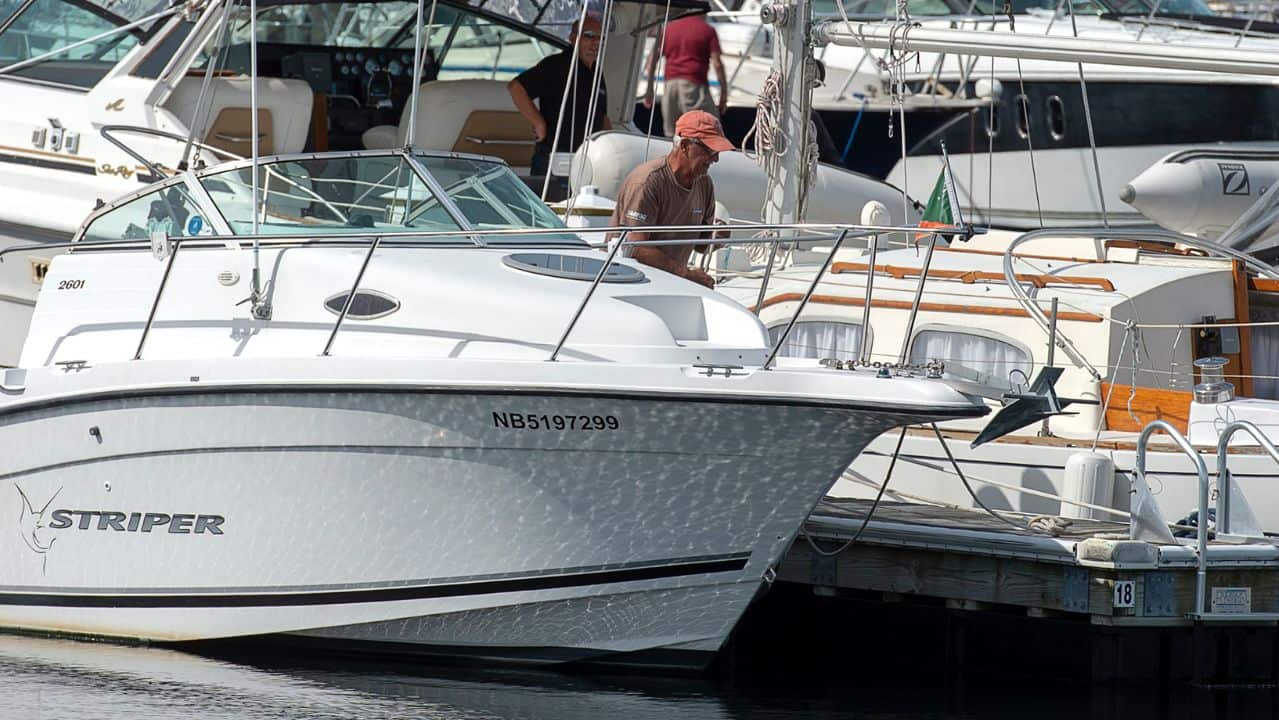Ottawa's luxury tax on high-priced cars, planes and boats is coming into effect today, despite warnings from some critics that the measure will hurt the economy and turn out to be more trouble than it's worth.
As of Thursday, luxury cars and personal aircraft with sale prices of over $100,000 and boats for personal use with price tags of more than $250,000 will be slapped with a 10 to 20 per cent tax.
The measure received final approval this past June and is expected to raise $163 million in new revenue per year.
Deputy Prime Minister and Finance Minister Chrystia Freeland defended the tax Wednesday on the eve of its launch after touring a transportation facility in Calgary.
She cited the considerable sums Ottawa spent "to keep Canadians healthy and safe and to keep the economy going" during the COVID-19 pandemic before specifically mentioning the new tax.
"I think it is entirely reasonable to say to someone who has $100,000 to spend on a car or a plane, or $250,000 to spend on a boat, 'You need to pay a 10 per cent tax to help everybody else,'" Freeland said during a news conference following her tour.
"I think it is great for Canadians to be successful. It is great for Canadians to be prosperous. I also think that people who are doing really, really well should feel comfortable supporting everybody else."
Businesses ask: Why not RVs too?
Mark Delaney is director of sales and marketing at a Vernon, B.C., company that manufactures boats worth up to $500,000. He said the tax will undermine a boom in boat sales that began when people were stuck at home during the COVID-19 lockdowns.
Delaney said the tax is coming at a time when inflation is driving up the cost of parts for boats. He warned that the measure will harm tourism businesses and could make purchasers, many of whom are business owners themselves, think twice about buying.
"They feel like they've paid more than their fair share in payroll taxes and everything else they do in their businesses every day," Delaney said. "And so to be hit ... with this tax is certainly not putting us in a very good light with the customer."
Both Delaney and Pat Sturgeon, who sells sailboats costing up to $700,000 in Mississauga, said it's unfair that other pricey items — such as RVs — are not being hit with the tax as well.
"A lot of my clients are not necessarily wealthy clients. In fact, most of them are just regular people trying to fulfil a dream," Sturgeon said.
"The only thing I'm hoping is that the government will find out this tax is not working, it's not creating more revenue, it's actually costing them more money, that they'll end up scrubbing it."
Tax a 'loaded approach': economist
Don Drummond, a former federal assistant deputy minister of fiscal policy and a former chief economist for TD Bank, said the tax could spawn "cottage industries" around people trying to circumvent it.
"Whatever you define as the threshold for a boat or whatever luxury good it is, somebody will do something to get around it," Drummond said. "That's a waste of the consumers' time. And it's a waste of the tax officials' time."

The luxury tax will be a tough sell, he said, because — unlike a tobacco tax — it's not aimed at improving health outcomes. And there are already mechanisms to tax the wealthy, Drummond added.
"It's not like these items are particularly dangerous to individuals or to society," he said of high-priced boats, cars and aircraft.
"The marginal tax rate on higher-income individuals is already over 50 per cent. If you wanted 60 or 70 per cent, that would be the way to do it.
"But [the luxury tax] is a loaded approach. It's not just saying, 'We want to have the better-off paying more tax.' We're saying we want them to pay more tax on very specific things, not even close to being all luxury goods."
https://news.google.com/__i/rss/rd/articles/CBMid2h0dHBzOi8vd3d3LmNiYy5jYS9uZXdzL3BvbGl0aWNzL2x1eHVyeS10YXgtYm9hdHMtY2Fycy1wbGFuZXMtZmVkZXJhbC1nb3Zlcm5tZW50LXRha2UtZWZmZWN0LXNlcHRlbWJlci0xLTIwMjItMS42NTY4NDIx0gEA?oc=5
2022-09-01 08:00:15Z
CAIiEO4wagVlV0biFPkpvplPi6oqFggEKg4IACoGCAowqKNmMKjdCjDBjx0

Tidak ada komentar:
Posting Komentar